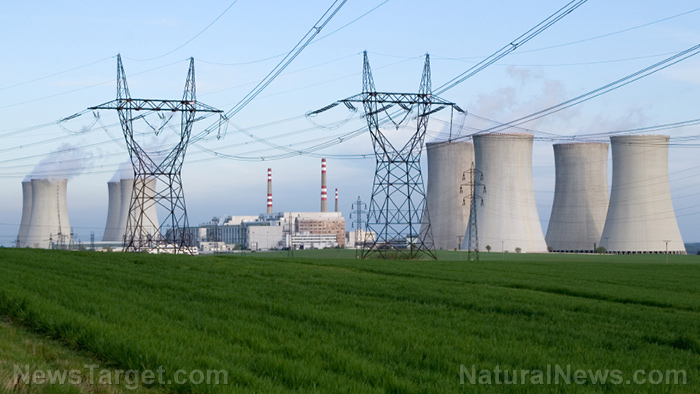(Natural News) Despite the fact that Europe faces a serious, self-imposed energy crisis of epic proportions, Belgium, ground zero of the European Union, is proceeding to dismantle its first nuclear plant in accordance with the country’s “green” nuclear phase-out law.
According to reports, the Doel 3 nuclear reactor ceased operation on September 23 after operating for 40 years. Back in the 1960s, Belgium’s leaders declared that fossil fuels were no longer enough to power the country’s growing energy demands, prompting the construction of Doel 3 in Doel, as well as three others (Doel 1, Doel 2, and Doel 4) in Tihange.
“The Doel 1 reactor started operating in early 1975, followed later that year by Doel 2. Doel 3 was launched in 1982, and Doel 4 was completed in mid-1985,” Euractiv reported.
Keep in mind that energy prices in Belgium are at record highs. One would think that Belgium’s leaders would skirt the nuclear phase-out law in the interest of protecting the public from freezing to death this winter – but one would be wrong.
“We have been preparing for this for four years,” announced Peter Moens, Doel 3’s site director.
Belgium is losing about 25 percent of its power-generating capacity with Doel 3 shutdown
The Doel 3 nuclear power facility generates a total power capacity of 2,935 megawatts (MW), compared to 3,008 MW at the Tihange plant. Together, these two plants produce about 50 percent of Belgium’s annual electricity consumption, which amounts to 42 billion kWh.
Taking Doel 3 offline means that Belgium just lost about 25 percent of its total energy production capacity – at a time when energy is hard to come by amid the ongoing Russian war in Ukraine and the West’s sanctions against Russia over it.
Doel 1 and 2 were supposed to have been shut down by now as well, but their lifespan was extended a few years until 2025. Officials have also agreed to extend Doel 4’s lifespan to 2025 as well, but that will need to be voted on by parliament by the end of 2023.
There were also talks about keeping Doel 3 online due to the ongoing energy crisis. Last week, Belgian minister of the Interior Annelies Verlinden asked the Federal Agency for Nuclear Control (FANC) to produce a report about the possibility of postponing the shutdown, which is irreversible – but that effort failed.
Following Doel 3’s disconnection from the grid, the shutdown phase is expected to last five or six years as the reactor is unloaded, its fuel elements cooled, and the entire infrastructure is decontaminated to eliminate all radioactive particles.
“No technically irreversible operations take place during this five-year phase,” said Moens, who says reversing the shutdown process that was prepared over the past four years is “neither wise nor advisable.”
Ordering more fuel for the facility, he says, would take about 36 months. Training the operators to continue running Doel 3 would take even longer at around three years, he warned.
“We have not been asked either,” Moens added about the situation. “We have no intention of restarting the reactor. I don’t improvise with nuclear safety.”
Belgian Energy Minister Tinne van der Straeten chimed in on the matter as well during the Chamber’s recent plenary session, indicating his belief that Belgium will still have enough power even with Doel 3 offline.
“Other than the logistical challenges that renewing the reactor would bring, there are also legal barriers that would need to be overcome,” reported The Brussels Times, along with a statement from someone in charge of the plant’s operations indicating that it would have been “legally prohibited” to keep the reactor operating past October 1.
“The decision was made years ago,” this person added. “To change plans at such short notice is just not feasible.”
The latest news about Europe’s energy collapse can be found at Collapse.news.
Sources for this article include:
Latest
- The tide has turned: Shipping lines no longer interested in renting container vessels
- European children suffer appalling 755% increase in excess death after COVID VACCINE approval
- Her Name Is Nancy Horton: 80-year White Grandmother Brutally Murdered by Two Black Males in a Home Invasion.
- ANALYSIS: Europe to become “ECONOMIC WASTELAND” as industry dies, banks fail and food production plunges
- Bill Gates brags about ordering Trump not to investigate covid vaccine dangers – TWICE

Your Daily Briefing:
Fight Online Censorship!
Get the news Google and Facebook don't want you to see: Sign up for DC Dirty Laundry's daily briefing and do your own thinking!

